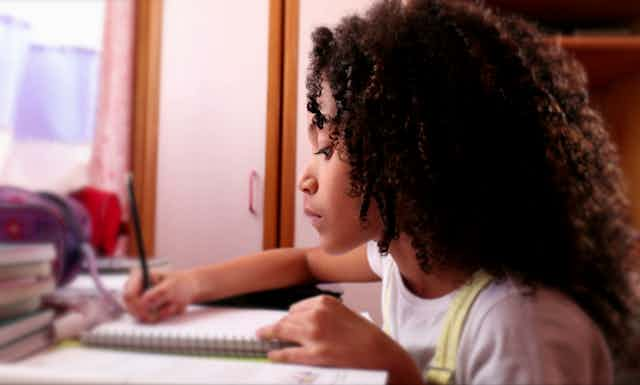The UK government has serious questions to answer about its approach to educational recovery, and schools need more help to look after the wellbeing of children and young people as they recover from the pandemic.
This is clear from a report from the House of Commons Education Committee which explored the impact of the government’s post-pandemic educational catch-up programme. The report makes uncomfortable reading for the government.
It finds that the National Tutoring Programme, set up to address learning lost during COVID-19 school closures in England, “appears to be failing the most disadvantaged”, reaching under 60% of the targeted number of schools in the north-east, north-west and Yorkshire and the Humber by March 2021.
It goes as far as recommending that the government consider removing the contract should the provider, Randstad, fail to improve the reach of the programme.
It also makes recommendations for schools. To address learning loss, the report suggests that pupils should spend more time in school and in extra-curricular activities at school.
What’s more, the report draws attention to alarming figures around children’s mental health. The number of children referred for mental health support rose 35% in 2019-2020 when compared to the year before.

To improve mental health, suggestions include that all children should be assessed on their mental wellbeing, that schools should have a member of staff who takes the lead on mental health, and that schools should focus on supporting mental resilience and wellbeing.
Pressure on schools
While the recommendations on mental health seem justified by the situation, this is a significant expansion of the remit of schools. Schools and teachers want to support children but are often not trained or staffed to deal with complex social and emotional needs.
While many schools will welcome a widening of their role to be able to better support youth mental health, the necessary funding and training for staff would take time to make an impact. Without a rapid acceleration of initiatives around mental health in schools, many children will be left still at risk and on long waiting lists for support and treatment.
The government is already in the process of rolling out mental health support teams to support schools in England, and intends that these should be able to offer support nearly three million children by 2023. However, in the 2020-2021 academic year there were 8,911,887 schoolchildren in England.
Schools may also welcome the proposals from the committee about extra-curricular activities. However, access to the spaces and resources for sports, creative activities and the performing arts is short in many schools, and once again, money will be needed to enable this to happen.
It certainly looks as if the House of Commons Education Committee sees a case for improved funding for sports and other extracurricular activities as part of the recovery programme. I wrote a year ago that this should play a key part in children’s recovery, and it seems that there is still a glaring need for a holistic plan.
What’s more, the problems schools and the government are facing as they try to help children recover from the pandemic are compounded by a lack of knowledge about how many children are missing out on education.
The Children’s Commissioner for England has published an interim report showing that local authorities are struggling to keep records on the education of children: they do not know how many children are missing out on school.
The report calls for better data collection from local authorities and points to a significant risk to the welfare and safety of children. It recommends the use of a single identifying code to enable children to be better tracked by multiple agencies.
It is clear from both of these reports that children and young people are going to need more support to recover from the pandemic.
Many millions have been spent on academic tuition programmes, and yet there is still so much unmet need. It is time for the government to rethink its strategy.
The most recent evidence suggests that children’s welfare, wellbeing and life chances are at risk and we many only be seeing the tip of the iceberg.

